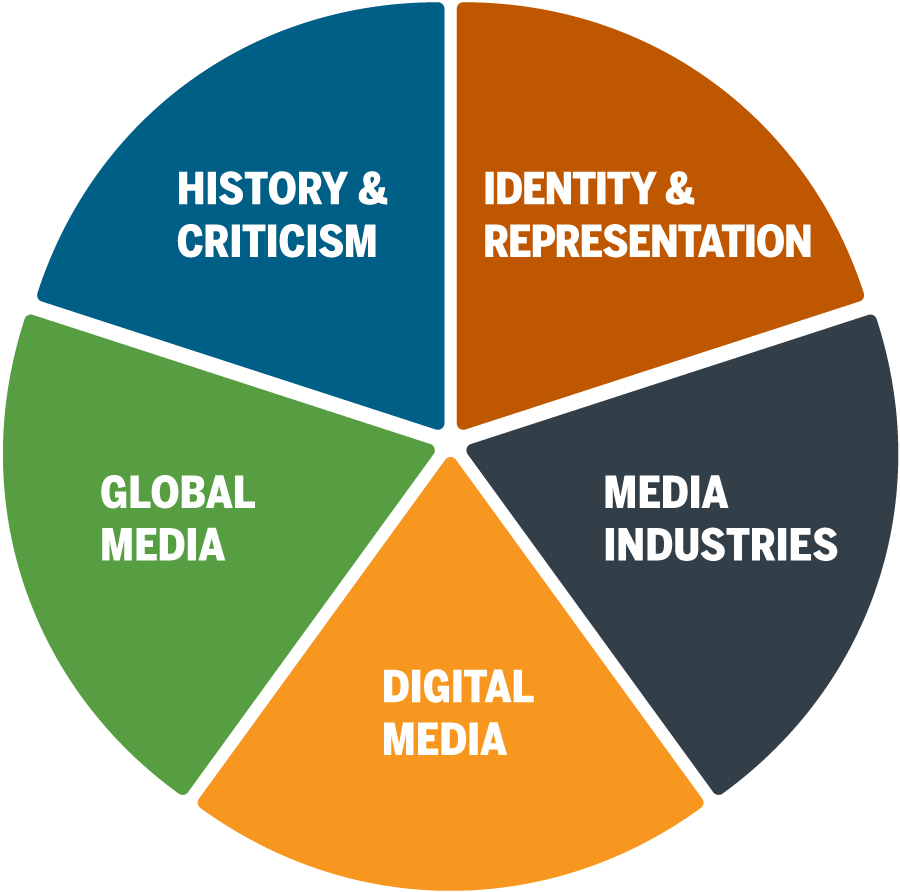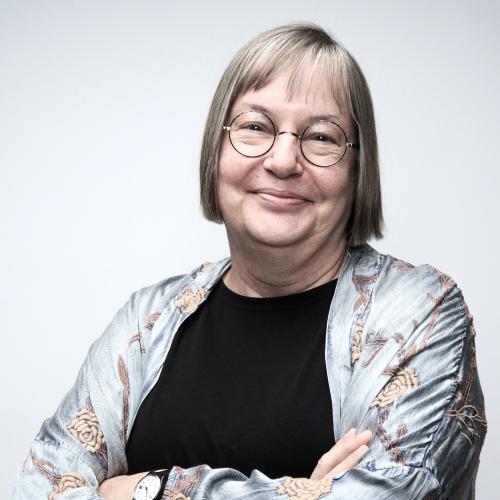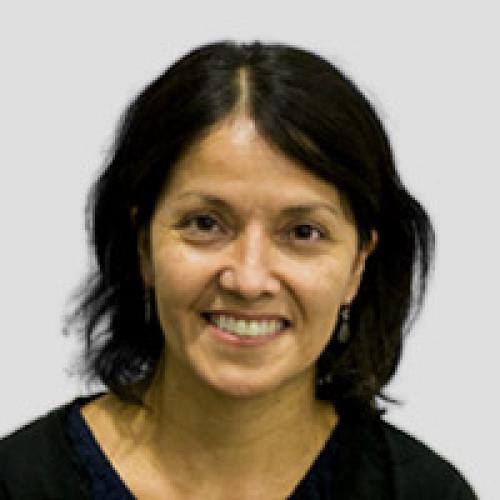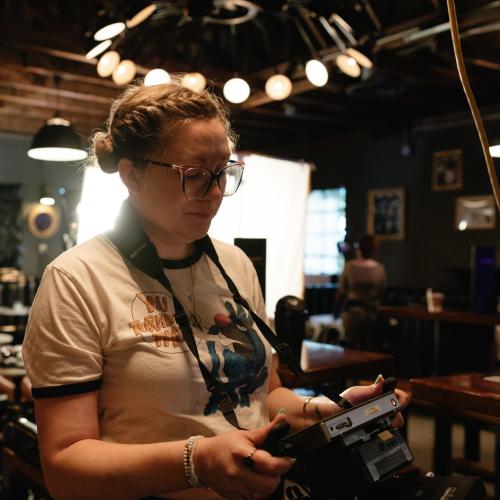The masters program in Radio-Television-Film emphasizes critical and contextual approaches to the study of media objects, industries, and cultures. With globally recognized faculty specializing in a wide array of media studies subfields, we prepare you for future career paths in academia, non-profit work, and the private sector.
Primary Research and Teaching Areas
Digital Media
Analyze interactive and emergent media texts and platforms, participatory digital cultures, social media, and algorithmic culture.
Global Media
Study media texts, audiences, industries, and cultures from transnational, national, regional and diasporic perspectives.
History and Criticism
Examine the sociohistorical contexts of film and media and engage in aesthetic and critical analysis.
Identity and Representation
Explore media's impact on culture and identity through interdisciplinary courses that examine the politics of representation through gender, race, sexuality, citizenship, and more.
Media Industries
Engage in topics relating to creative labor, production, distribution, infrastructures, regulation, and exhibition.
Program of Study
The M.A. (Media Studies) is designed as a two-year scholarly degree program in which students produce work that applies theory to original research. There are two options to complete the degree: thesis (30-hour program of work) or master's report (33-hour program of work). Students are also required to take six credit hours in a minor field, outside the Department of Radio-TV-Film. Minor work may be taken in the College of Communication or elsewhere in the University. Coursework is chosen in consultation with the Graduate Advisor.
Thesis Option
Students will incorporate 30 hours of coursework and research culminating in a Thesis, written under the direction of an advisor and second reader.
Report Option
Students complete 33 hours of course work and a Report, under the direction of an advisor and second reader. This option may be taken by students choosing not to apply to PhD programs. A Master’s Report typically employs applied research in media studies and may also link to an adjacent field such as media advocacy, archival work, film festival programming, or education.
Learn more about the Program of Work.
Supporting Your Success
- Structured timeline for successful program completion
- Faculty mentorship
- High success rate of placement in doctoral programs
- Internships with local media industry, festivals, policy institutions and cultural organizations
- Biannual professional development workshops
- Harry Ransom Center Film Research Collections
- Vast RTF resources at UT Libraries
- Editorial and organization roles for department based journals
- Interdisciplinary and portfolio program options (in areas such as African and African Diaspora Studies, Women's and Gender Studies, and more)








